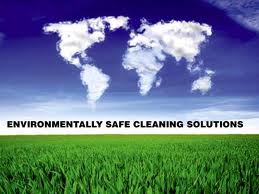It is the duty of the industrial hygienist to anticipate, recognize, evaluate, communicate, and control environmental hazards that stem from several workplace toxicity releasers that could potentially hurt, harm, injure, impair, or seriously negatively affect the workforce. An industrial hygienist is expected to find, analyze, and deconstruct – if need be – any toxin that could lead to  dangerous conditions for workers. The roles of industrial hygienists have been put under a microscope due to the more strict regulations set forth by government regulatory committees, as the United States has seen a strong push by both its citizens and their representatives to make sure people, along with the environment, are protected by the ignorance, incompetence, or even more frightening, the apathy of industrial businesses and their possible use of hazardous cleaners, liquids, gases, and materials. With advancements and alternatives designed and now made available to replace harmful agents used by industrial companies, there is no reason why any organization should be using harmful chemicals to clean or treat parts, metals, or materials. This is why industrial hygienists mandate strict enforcement on the rules and regulations set forth pertaining to the penalties for using harmful chemicals and materials.
dangerous conditions for workers. The roles of industrial hygienists have been put under a microscope due to the more strict regulations set forth by government regulatory committees, as the United States has seen a strong push by both its citizens and their representatives to make sure people, along with the environment, are protected by the ignorance, incompetence, or even more frightening, the apathy of industrial businesses and their possible use of hazardous cleaners, liquids, gases, and materials. With advancements and alternatives designed and now made available to replace harmful agents used by industrial companies, there is no reason why any organization should be using harmful chemicals to clean or treat parts, metals, or materials. This is why industrial hygienists mandate strict enforcement on the rules and regulations set forth pertaining to the penalties for using harmful chemicals and materials.
As mentioned above, there is really no reason why industrial corporations cannot make an easy transition to an eco friendly, green alternative cleaner or degreasing product that cleans and degreases as well, if not better than the previous solution. It is merely a matter of finding a low VOC (volatile organic compound) cleaner an industrial hygienist can endorse. Thankfully, there are companies out there, such as Ecolink, whose sole purpose is to research, find, and create eco friendly and green alternative solvents that have a low VOC to which industrial businesses can transition, and an industrial hygienist can approve.
Ecolink has evaluated most industrial solutions and can notify industrial businesses that use cleaning agents whether the chemicals their company is using are harmful to their workforce and to the environment. Ecolink has also found success developing alternative solutions that boast very low VOC agents, and are considered harmless to both people and to the environment, even with extended use.
Because of how serious the repercussions are for using high VOC cleaners, as well as the penalties set forth by industrial hygienists and federal regulatory committees, it is recommended that you contact Ecolink, and discuss with them the type of cleaning and degreasing solvent you are using, and they can tell you whether it is a high or low VOC cleaner. If your chemical solution happens to be a high VOC cleaner, no need to worry, as Ecolink will decipher the best alternative solution to the solvent you are using. Ecolink promises that the new, low VOC cleaner will be eco friendly, and will clean as well as, or even better than your previous brand. It will also be a low VOC cleaner an industrial hygienist can endorse.














